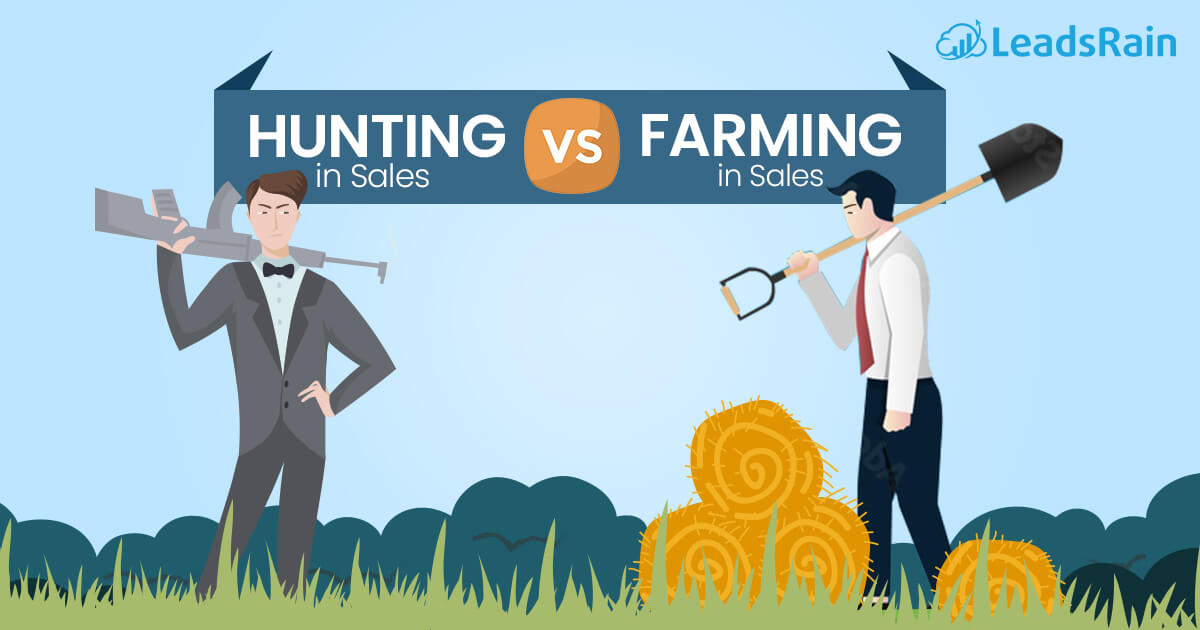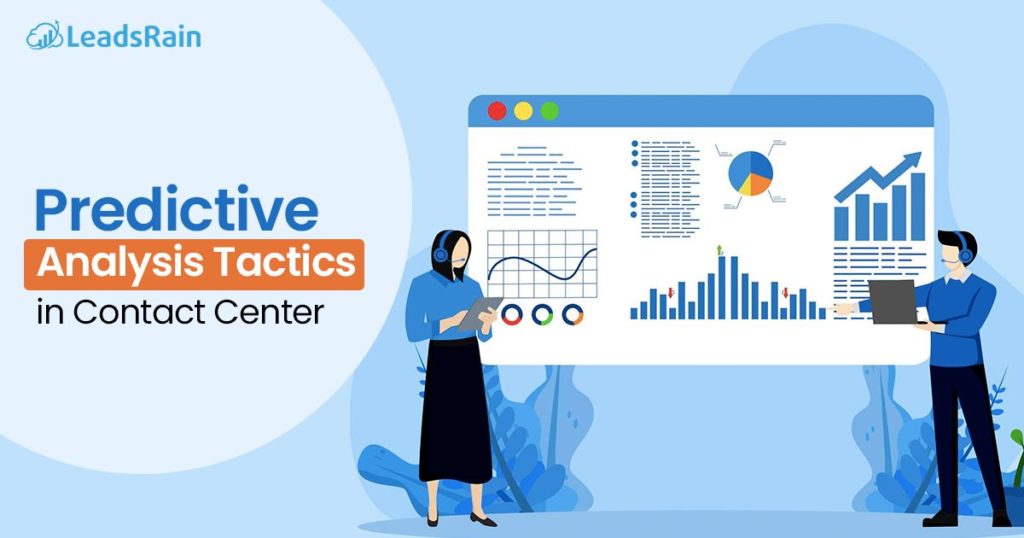Hunting and farming are two unique strategies that have been widely explored in the world of sales. These metaphors, which were taken from the hunting and farming industries, represent two distinct approaches for salespeople.
In this article, you will learn about the distinctions between these two sales approaches, their individual benefits and drawbacks, and the critical task of striking the ideal balance between the two strategies for long-term success.
Understanding the Difference between Hunting and Farming as Sales Strategies

Consider the term “hunting” to describe a more aggressive and active sales strategy in which salespeople actively look for fresh leads and prospects. It includes identifying prospective clients, making cold calls, going to events, and carrying out focused outreach. Making sales and generating quick money are the objectives here.
On the other hand, farming is a more passive and long-term approach. It focuses on nurturing existing customer relationships and maximizing their lifetime value. By providing excellent customer service, offering additional products or services, and building loyalty, the aim is to cultivate repeat business and referrals.
Knowing when to use each approach is key. Hunting is beneficial when you want to expand your customer base, reach new markets, or promote a new product or service. Conversely, farming is ideal when you want to strengthen existing relationships, retain customers and encourage repeat business.
Of course, both strategies can be used simultaneously, but understanding the difference helps you allocate resources effectively. So, depending on your goals, target audience, and stage of business, you can choose the most suitable approach or even combine them to create a comprehensive sales strategy.
Hunting Sales Approach: The Thrill of the Chase
Hunting in sales refers to the proactive strategy of seeking out new business opportunities and closing deals with potential clients. A successful hunter possesses excellent prospecting skills, deep knowledge of the market, and the ability to establish and maintain meaningful relationships.
Importance of Hunting Approach in Sales
Hunting plays a vital role in the world of sales, serving as a powerful strategy for businesses to drive revenue growth. Hunting in sales is a crucial strategy for businesses to expand their reach, build relationships and stay competitive in today’s dynamic marketplace. Thus, hunting is also important as it enables sales professionals to build strong relationships with prospects, fostering trust and credibility. This personalized approach not only boosts the chances of closing deals but also creates loyal customers who are more likely to recommend the business to others.
Pros of Hunting in Sales:
- New customer acquisition: Hunting allows you to actively seek out and acquire new customers, expanding your customer base and potentially increasing sales.
- High growth potential: By pursuing new leads, you can tap into untapped markets and unlock new revenue streams, fueling business growth.
- Variety and challenge: Hunting offers a fresh and dynamic environment, presenting different sales opportunities and challenges, which can keep you engaged and motivated.
Cons of Hunting in Sales:
- Longer sales cycle: Acquiring new customers often involves a longer sales cycle, requiring more time and effort to convert leads into actual sales.
- Higher customer acquisition costs: The process of hunting may require investing in marketing, lead generation, and other sales initiatives, which can be costly.
- Lower customer loyalty: Since hunting focuses on acquiring new customers, the emphasis on relationship building may be relatively lower, potentially resulting in lower customer loyalty compared to farming approaches.
Farming Sales Approach: Cultivating Long-term Relationships
On the other hand, farming in sales revolves around cultivating and nurturing long-term relationships with existing clients. This approach builds trust, provides exceptional service, and delivers ongoing value to ensure customer loyalty. Successful farmers possess exceptional relationship-building skills, a deep understanding of their client’s needs, and the ability to support and anticipate their future requirements.
Importance of Farming Approach in Sales
Farming, in the context of sales, plays a crucial role in the success and sustainability of any business. The importance of farming in sales cannot be overstated, as it serves as the foundation for consistent revenue generation and customer loyalty. First and foremost, farming helps businesses build trust and credibility with their clients.
Furthermore, farming is instrumental in fostering customer loyalty. When clients feel valued and appreciated, they are more likely to remain loyal to a brand, even in the face of competition. Thus, the importance of farming in sales lies in its ability to build trust, uncover new sales opportunities, and foster customer loyalty.
Pros of Farming in Sales:
- Relationship building: Farming allows you to focus on cultivating long-term relationships with existing customers, which can lead to increased loyalty and repeat business.
- Predictable revenue: By nurturing existing customers, you have a more stable revenue stream as you can anticipate their needs and tailor your offerings accordingly.
- Upselling and cross-selling opportunities: Farming enables you to identify opportunities for upselling or cross-selling to your existing customer base, thereby maximizing sales potential.
Cons of Farming in Sales:
- Time-consuming: Building and maintaining relationships with customers requires a significant investment of time and effort.
- Limited new customer acquisition: By primarily focusing on existing customers, there may be fewer opportunities to bring in new customers and expand your customer base.
- Potential stagnation: Relying solely on farming strategies may lead to a lack of innovation and limited growth potential if not complemented with other sales approaches.
Factors to Consider When Choosing Between Hunting and Farming
Sales professionals often face the dilemma of choosing between two primary approaches- hunting and farming.
Both strategies have their pros and cons, making the decision challenging. So, let’s find out some factors that one should consider when deciding between these two approaches in sales.
Business goals
Clearly define your business goals and sales objectives. Are you aiming for rapid growth, expanding into new markets, or focusing on nurturing existing customer relationships? Understanding your goals will help determine the most suitable approach.
Target market
Analyze your target market and understand its dynamics. Are there untapped customer segments or new opportunities to pursue? Assess whether hunting for new customers or farming existing ones aligns better with your target market’s needs and preferences.
Industry and competitions
Evaluate the competitive landscape and industry trends. Are there intense market competitions or emerging trends that require proactive hunting strategies? Understanding the competitive dynamics will help guide your decision.
Resources and capabilities
Assess your internal resources, including budget, sales team expertise, and technological capabilities. Hunting strategies may require more marketing, lead generation, and training investment, while farming may demand a more customer-centric approach and relationship-building resources.
Sales cycle and revenue stability
Consider the sales cycles and revenue stability associated with each approach. Farming usually provides more predictable revenue streams, while hunting may involve longer sales cycles and variability. Determine your risk tolerance and ability to handle fluctuations in revenue.
Customer lifecycle
Examine the lifecycle of your customers. Are they more likely to have ongoing needs, allowing for potential upselling and cross-selling (farming), or is there a higher demand for acquiring new customers due to shorter customer lifecycles (hunting)? Align your approach with your customer base’s behavior.
Balancing strategies
It’s not always an either-or choice. Depending on your business, a combination of hunting and farming approaches may be the most effective. Explore the possibilities of integrating strategies that complement each other and provide a balanced sales approach.
Different Sales Scenarios That Benefit From Each Approach
Understanding the different aspects of sales scenarios is crucial for success. Let’s delve into different sales scenarios in farming and hunting and how they can be leveraged to increase revenue.
Subscription-based business | Farming |
Farming is ideal if your business relies on repeat purchases or operates on a subscription model. By nurturing existing customer relationships, you can encourage loyalty, upsell/cross-sell, and ensure ongoing revenue.
Expanding into new markets | Hunting |
Hunting is crucial if your business is targeting new customer segments or entering new geographic markets. It allows you to actively seek out and acquire new customers, helping you establish a foothold and expand your business.
Product launches | Hunting |
When introducing new products or innovative solutions, hunting is beneficial. You can proactively identify potential early adopters, generate excitement and secure new customers eager to try something new.
Account-based sales | Farming |
Farming is effective in scenarios where your sales team focuses on a few key accounts with high-value clients. Building strong relationships and personalized experiences can lead to long-term partnerships and significant revenue growth.
Start-ups | Hunting |
If your business is in its early stages or experiencing rapid growth, hunting strategies are vital to drive revenue and acquire new customers quickly. It allows you to build a customer base, establish a market presence, and fuel expansion.
Mature markets or saturated industries | Farming |
When operating in a mature market with intense competition, farming helps retain an existing customer base. By providing exceptional customer service and personalized attention, you can differentiate yourself from competitors and foster customer loyalty.
Targeting specific customer segments | Hunting |
In cases where you identify specific customer segments with unmet needs, hunting helps you capture those opportunities. By actively pursuing and engaging with these potential customers, you can tailor your offerings to their requirements and gain a competitive advantage.
Conclusion
Finding the optimal balance between hunting and farming in sales is the key to achieving sustained success. Both approaches have unique pros and cons; depending on the industry, target market, and individual strengths, one strategy may be more suitable. By understanding their differences and importance, sales professionals can devise a personalized approach that combines the best of both worlds, leading to outstanding success in their careers.




